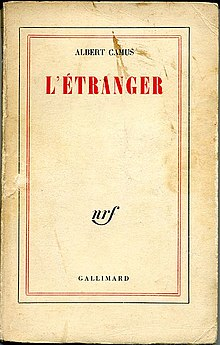The Alchemist by Paulo Coelho
"Two years ago, right here on this spot, I had a recurrent dream, too. I dreamed that I should travel to the fields of Spain and look for a ruined church where shepherds and their sheep slept. In my dream, there was a sycamore growing out of the ruins of the sacristy, and I was told that, if I dug at the roots of the sycamore, I would find a hidden treasure. But I’m not so stupid as to cross an entire desert just because of a recurrent dream."
here we find that the treasure Santiago was looking for was in the very ruined church where he spent his night at the beginning of the novel. The only difference is Santiago believed in the dream and spent most of his life on a journey, whereas the tribal refuge was stuck in the same place. It is not about the destination but the journey that we experience and enjoy. It was that journey from which he found his love Fatema, and met characters like the Textile merchant's daughter, Gipsy woman at Tarifa, Melchizedek -- (the old man) King of Salem, the Crystal merchant (shopkeeper), The Englishman, the Alchemist, and The Coptic Monk.
Magic Realism:
Magic realism is a literary genre that blends elements of fantasy and reality, creating a surreal and dreamlike atmosphere. Magic realism can be considered one of the main themes of the novel as the story largely deals with the Omens, Soul of the World, Personal Legends, Urim and Thummim (the stones) Alchemy, etc.
The latter part of the novel (pg. no. 100-105 e-book) is an example of magic realism, a literary style in which magical or fantastical elements are seamlessly integrated into a realistic setting. Magic realism is characterized by its ability to blur the lines between the real and the surreal and to create a sense of wonder and otherworldliness. In the sequence, the boy speaks to the desert and the wind, asking for their help in finding the person he loves. The desert and the wind are personified, giving them human-like qualities and abilities, which is an example of magic realism.
Let's have look at some quotes to understand this:
"I’ll give you my sands to help the wind to blow, but, alone, I can’t do anything. You have to ask for help from the wind."
"The wind has many names. In that part of the world, it was called the sirocco, because it brought moisture from the oceans to the east. In the distant land the boy came from, they called it the levanter, because they believed that it brought with it the sands of the desert, and the screams of the Moorish wars."
This quote shows the wind being given different names and abilities depending on the location, adding to the magical and fantastical atmosphere of the story.
Additionally, the passage also describes the wind as "blowing across the world without a birthplace, and with no place to die." This quote highlights the mysterious and otherworldly nature of the wind, adding to the magic realism in the story.
"I learned the alchemist's secrets in the desert, and I know that everything is connected. We are all part of the same universe, and we all have the same potential to change and transform."
"Well, why don’t you go to Mecca now?" asked the boy."Because it’s the thought of Mecca that keeps me alive..."










No comments:
Post a Comment